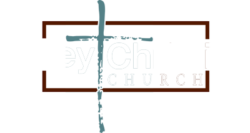Zechariah Sermon Series: Sermon 23
1-26-25 – Jerry Mongello

Zechariah 9 – Part 2
Prayer for Fire Victims We pray for the fire victims, including the families of those who lost their lives. We pray for the health of our congregation and for the family members of our congregation. We pray for the Church as a whole, for the churches that are faithfully teaching the whole counsel of God’s Word, that God would strengthen us, open doors for us, and keep us from growing complacent. We offer all these prayers up to You, Father, in the name of our Lord and Savior, Jesus. Amen.
Message by Pastor Jack Hibbs Last week, Pastor Jack Hibbs delivered a message to his congregation, criticizing left-wing politicians in California. He alleged that they failed to store water from two years of above-average rainfall while instead voting to allocate $50 million for a defense fund against newly elected President Trump. Some may claim that this is God’s judgment; however, I will not presume to speak for God.
This situation serves as a reminder that the problems facing our state and country arise from misplaced faith in government, human beings, and worldly systems. I am also concerned about the Church growing complacent. After the victory we achieved in November, I truly believe we voted out a very evil group of people who promoted beliefs contrary to God’s will.
Scriptural Reflection Amos 6:1-6 (NKJV):
1 Woe to you who are at ease in Zion, And trust in Mount Samaria, Notable persons in the chief nation, To whom the house of Israel comes! 2 Go over to Calneh and see; And from there go to Hamath the great; Then go down to Gath of the Philistines. Are you better than these kingdoms? Or is their territory greater than your territory? 3 Woe to you who put far off the day of doom, Who cause the seat of violence to come near; 4 Who lie on beds of ivory, Stretch out on your couches, Eat lambs from the flock And calves from the midst of the stall; 5 Who sing idly to the sound of stringed instruments, And invent for yourselves musical instruments like David; 6 Who drink wine from bowls, And anoint yourselves with the best ointments, But are not grieved for the affliction of Joseph.
Review and Apology I want to apologize for last week. I believe I attempted to cover too much at once, and it was not the right time to do so. I do not think the congregation benefited from me trying to present more material in one session. Therefore, I will go over some of last week’s message again so we can better digest the significance of Chapter 9, along with the remaining chapters in the book of Zechariah.
Overview of Zechariah 9-14 Zechariah chapters 9 through 14 are considered the second half of Zechariah’s prophecies. Like chapters 1 through 8, these chapters address the judgment of nations, the first and second coming of the Messiah, and His Messianic kingdom. Chapters 9 through 14 cover the same prophetic period, detailing the overthrow of Gentile world powers and the establishment of the Messiah’s kingdom.
This great prophecy of the Messianic future consists of two prophetic oracles, or burdens. The first oracle encompasses the first advent and rejection of the Messiah, the Shepherd King (chapters 9-11). The second oracle concerns the second advent and the acceptance of the Messiah, the Shepherd King (chapters 12-14). The unity and scope of Zechariah’s prophecy argue against the idea of multiple authors. When critics cannot refute the accuracy of biblical prophecy, they attempt to undermine it by claiming multiple authors.
Zechariah 9:1 (NKJV)
The burden of the word of the LORD against the land of Hadrach, And Damascus its resting place (For the eyes of men And all the tribes of Israel Are on the LORD);
Hadrach is mentioned only once in the Old Testament. There is much debate about this city’s exact location, but it is believed to be in Syria, now modern Lebanon.
After Alexander the Great dealt a significant defeat to Darius and the Persians, Syria and Palestine were left vulnerable to his swift conquests, exposing Egypt to his victorious army. Zechariah envisions the defeat of Israel’s historical enemies—first Damascus, then Hamath, followed by other cities in the Syrian interior. Subsequently, he describes the fall of cities along the Mediterranean coast that stood in the way of Alexander’s advance into Egypt.
As I mentioned last week, Alexander’s defeat of Damascus is not the fulfillment of Isaiah 17’s prophecy. Isaiah 17 clearly states that Damascus will become a heap of ruins:
Isaiah 17:1-3 (NKJV)
1 The burden against Damascus. “Behold, Damascus will cease from being a city, And it will be a ruinous heap. 2 The cities of Aroer are forsaken; They will be for flocks Which lie down, and no one will make them afraid. 3 The fortress also will cease from Ephraim, the kingdom from Damascus, And the remnant of Syria; They will be as the glory of the children of Israel,” says the LORD of hosts.
Meaning of “The Eyes of Men and All the Tribes of Israel Are on the LORD” After a detachment of Alexander’s forces sacked Hadrach and took key towns like Damascus and Hamath, Zechariah envisions humankind and all the tribes of Israel fixing their eyes on the Lord. The Hebrew word for “men” in this passage is adam, the same word used in Genesis 1:26-27.
Genesis 1:26-27 (NKJV)
26 Then God said, “Let Us make man in Our image, according to Our likeness; let them have dominion over the fish of the sea, over the birds of the air, and over the cattle, over all the earth and over every creeping thing that creeps on the earth.” 27 So God created man in His own image; in the image of God He created him; male and female He created them.
Zechariah sees humankind fixing their eyes on the Lord God. What made Alexander great was that he was unknowingly a servant of the Lord, carrying out His divine will. This passage reminds us that in times of tribulation and divine judgment, we must always keep our eyes on Jesus.
Matthew 14:28-33 (NKJV)
28 And Peter answered Him and said, “Lord, if it is You, command me to come to You on the water.” 29 So He said, “Come.” And when Peter had come down out of the boat, he walked on the water to go to Jesus. 30 But when he saw that the wind was boisterous, he was afraid; and beginning to sink he cried out, saying, “Lord, save me!” 31 And immediately Jesus stretched out His hand and caught him, and said to him, “O you of little faith, why did you doubt?” 32 And when they got into the boat, the wind ceased. 33 Then those who were in the boat came and worshiped Him, saying, “Truly You are the Son of God.”
Conclusion The Church of Laodicea serves as a warning against complacency. God rebukes and chastens them, but He also offers them an opportunity to repent. If you have not yet accepted God’s grace, know that He loves you and is saying:
Revelation 3:20 (NKJV)
Behold, I stand at the door and knock. If anyone hears My voice and opens the door, I will come in to him and dine with him, and he with Me.

